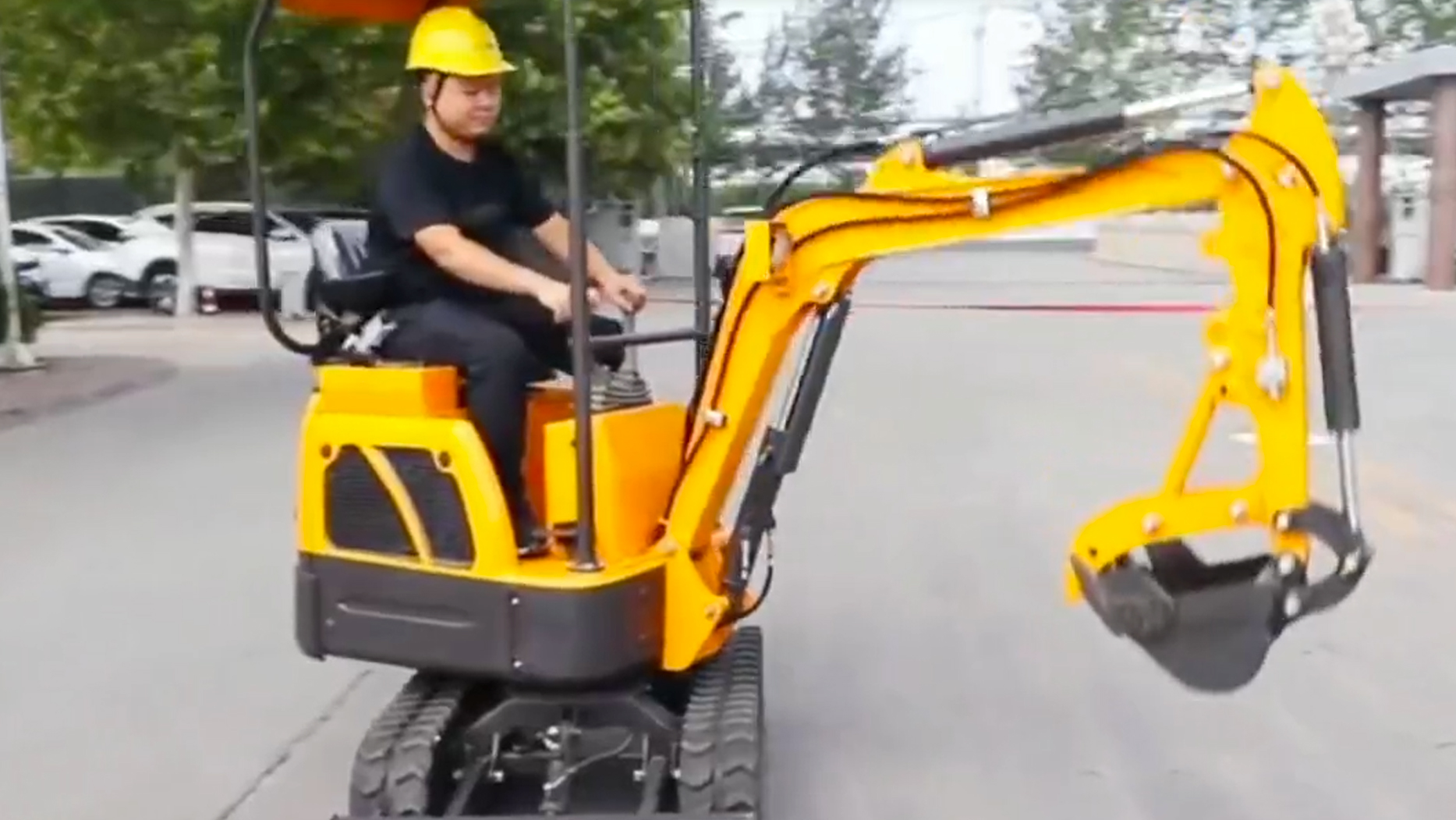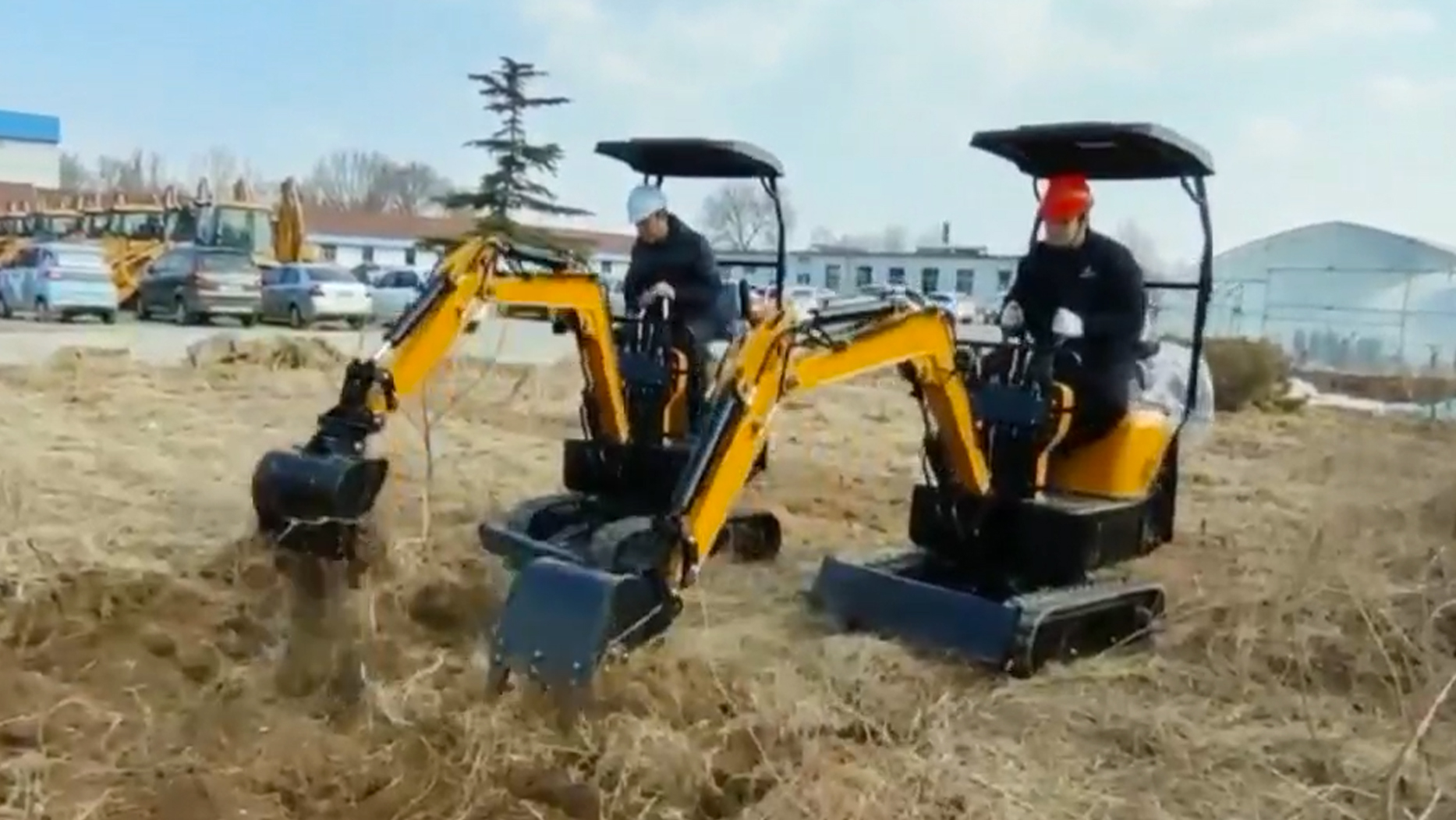I. Introduction
Mini excavators are incredibly versatile machines, perfect for tackling a variety of weekend landscaping or DIY projects. From digging trenches for irrigation systems to leveling ground for patios, their compact size and powerful capabilities make them an ideal choice. Renting a mini excavator for a weekend project offers a cost-effective solution for those who don't require long-term ownership. This article provides a detailed breakdown of the costs associated with renting a mini excavator for a weekend, helping you budget effectively and avoid unexpected expenses.
II. Factors Influencing Rental Costs
Mini Excavator Size and Model:
Smaller, lighter models typically cost less to rent than larger, more powerful ones.
Newer models with advanced features may command higher rental fees compared to older, basic models.
Specialized attachments, such as augers or breakers, will increase the overall rental cost.
Rental Duration:
Weekend rental rates are often structured differently than daily or weekly rates, potentially offering a slight discount.
Exceeding the agreed-upon rental time can lead to significant extra charges, so accurate project planning is essential.
Holiday weekends or peak seasons may see increased demand and higher rental prices.
Location and Rental Company:
Rental costs can vary significantly based on geographic location, with urban areas often having higher prices.
National rental chains may offer standardized pricing, while local rental shops may provide more flexibility.
Delivery and pickup fees can vary based on distance, impacting the overall cost.
Insurance and Damage Waivers:
Rental companies typically require insurance coverage, which can be mandatory or optional.
Damage waivers offer protection against accidental damage to the machine, reducing potential out-of-pocket expenses.
Understanding the terms and conditions of insurance and waivers is crucial for avoiding unexpected liability.
III. Breakdown of Typical Rental Costs
Base Rental Fee:
Average weekend rental rates for common mini excavator sizes can range from $200 to $500, depending on the model and location.
Comparing costs between different models and brands is essential for finding the best deal.
Look for potential discounts or promotional offers, especially during off-peak seasons.
Delivery and Pickup Fees:
Delivery and pickup fees can range from $50 to $200, depending on distance and location.
Self-transportation options, requiring a suitable trailer and vehicle, can save money but add logistical complexity.
Fuel costs for delivery vehicles are often factored into the delivery fee.
Insurance and Damage Waiver Costs:
Insurance coverage typically costs $20 to $50 per day, depending on the machine's value and the policy's coverage.
Damage waivers can range from $30 to $100 per day, offering varying levels of protection.
Carefully review policy terms and conditions to understand coverage details and exclusions.
Fuel and Consumables:
Mini excavators typically use diesel fuel, with consumption rates varying depending on the model and operating conditions.
Fuel costs can range from $50 to $100 for a weekend project, depending on usage.
Rental companies may charge refueling fees if the machine is returned with less fuel than when it was rented.
IV. Additional Costs and Considerations
Attachment Rentals:
Renting attachments like augers, breakers, or specialized buckets can add $50 to $150 per day to the rental cost.
The complexity and demand for specific attachments influence rental fees.
Quick-attach systems can speed up attachment changes, increasing efficiency and reducing downtime.
Cleaning and Maintenance Fees:
Rental companies may charge cleaning fees if the machine is returned excessively dirty, ranging from $50 to $200.
Damage fees can be substantial if the machine is returned damaged, so documenting its condition before rental is crucial.
Avoid cleaning and maintenance fees by returning the machine in the same condition as when it was rented.
Training and Operation Costs:
If you lack experience operating a mini excavator, consider taking a short training course, which can cost $100 to $300.
Hiring an experienced operator for the weekend can cost $200 to $400 per day, depending on their experience and the project's complexity.
Safety equipment and gear, such as helmets and safety vests, may be required and can add to the overall cost.
V. Comparing Rental Options and Finding Deals
Online Rental Platforms:
Online platforms allow for easy comparison of prices and availability from multiple rental companies.
Reviews and ratings can help assess the reliability and quality of rental providers.
Look for online discounts and promotions to save money.
Local Rental Shops:
Local rental shops may offer personalized service and expertise tailored to your specific needs.
Negotiating rates and flexible terms may be possible with local providers.
Building relationships with local rental companies can lead to future discounts and benefits.
Negotiating Rental Rates:
Negotiate better rates by booking in advance, especially during off-peak seasons.
Leverage competitor quotes to negotiate a lower price.
Consider renting for a longer period if it results in a lower overall daily rate.
VI. Preparing for Your Weekend Rental
Assessing Project Needs:
Determine the appropriate mini excavator size and attachments based on your project requirements.
Plan the project thoroughly and estimate the rental duration accurately.
Check site accessibility and clearance to ensure the machine can be maneuvered effectively.
Checking Equipment Condition:
Inspect the mini excavator thoroughly for any damage or functionality issues before rental.
Document the pre-rental condition with photos and videos to avoid liability for existing damage.
Understand the rental agreement and liability terms to protect yourself from unexpected costs.
Safety and Operation Tips:
Review safety guidelines and operating instructions provided by the rental company.
Ensure proper protective equipment, such as helmets, safety glasses, and gloves, is available.
Plan for safe transport and storage of the machine during the rental period.
VII. Case Studies and Real-World Examples
Example 1: Small Backyard Project:
A homeowner rented a small mini excavator for $300 for a weekend to dig trenches for an irrigation system.
Delivery and pickup cost $100, insurance was $60, and fuel was $50, totaling $510.
Lessons learned: Planning the project accurately prevented extra rental time.
Example 2: Larger Excavation Project:
A contractor rented a mid-sized excavator with a breaker attachment for $600 for a weekend to remove a concrete patio.
Attachment rental was $150, delivery was $120, and insurance was $80, totaling $950.
Importance: Proper attachment selection saved time and labor.
Example 3: DIY vs. Hiring an Operator:
Renting a machine and operating it themselves cost $450 for a weekend, while hiring an operator would have added $600.
DIY saved money, but required more personal time and effort.
VIII. Potential Hidden Costs and How to Avoid Them
Late Return Fees:
Understand the rental company's late return policy and plan for potential delays.
Schedule flexibility into your project to avoid rushing and potential late fees.
Damage Claim Disputes:
Document the equipment's condition thoroughly before rental and communicate any issues promptly.
Understand liability terms and ensure adequate insurance coverage.
Fuel Surcharges:
Clarify fuel policies and potential surcharges before rental.
Refuel the machine before returning it to avoid refueling charges.
IX. Long-Term Considerations: Renting vs. Buying
Cost Analysis:
Compare the costs of renting vs. buying a mini excavator based on frequency of use and project requirements.
Consider factors such as depreciation, maintenance, and storage costs when evaluating long-term ownership.
Maintenance and Storage:
Renting eliminates the need for maintenance and storage, reducing long-term costs.
Long-term ownership requires regular maintenance and secure storage, adding to overall expenses.
X. Conclusion
Renting a mini excavator for a weekend project can be a cost-effective solution for tackling various landscaping and DIY tasks. By understanding the factors influencing rental costs, comparing rental options, and planning carefully, you can minimize expenses and maximize project efficiency. Proper preparation, documentation, and adherence to safety guidelines are essential for a successful rental experience.
Post time:Sep-25-2020



